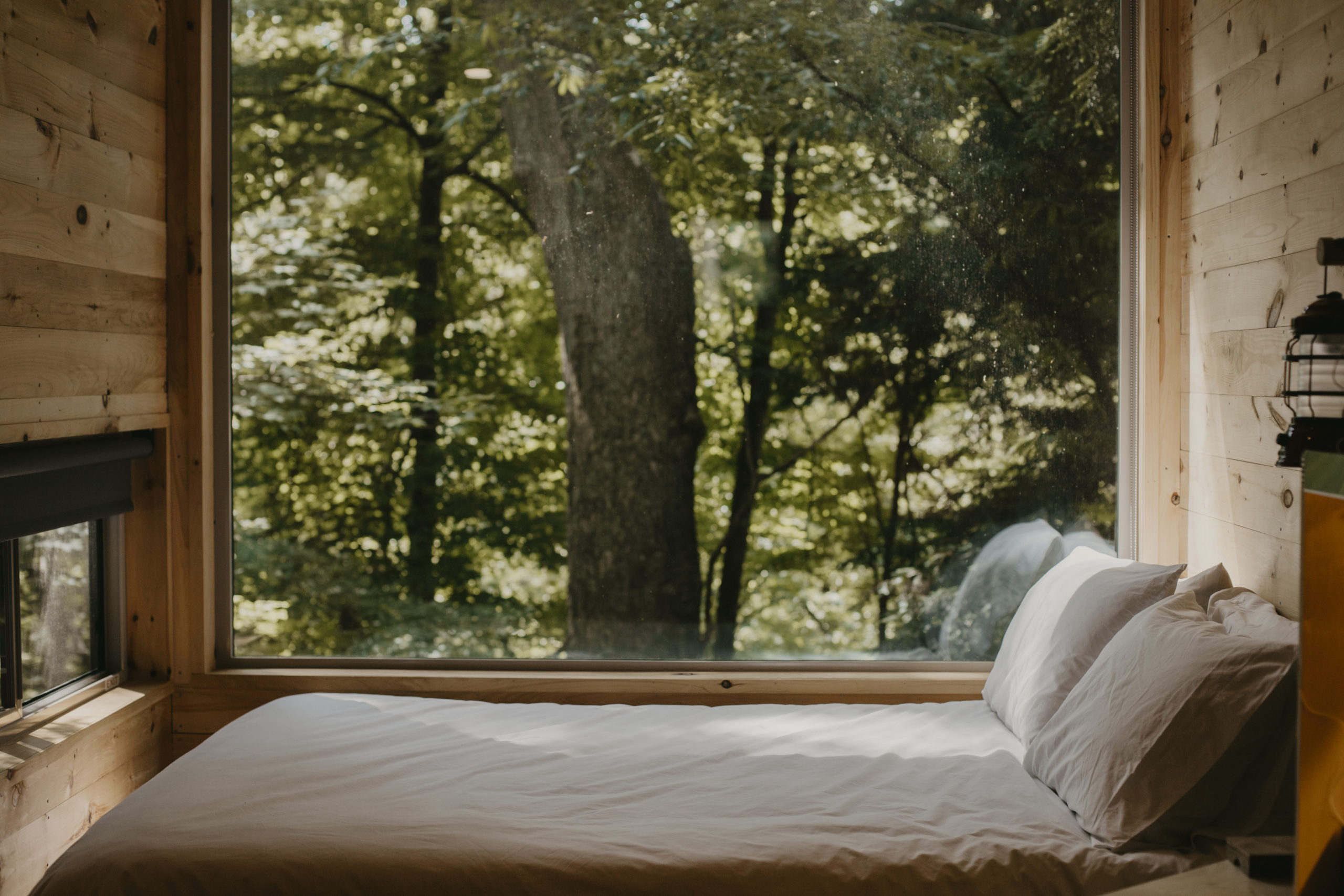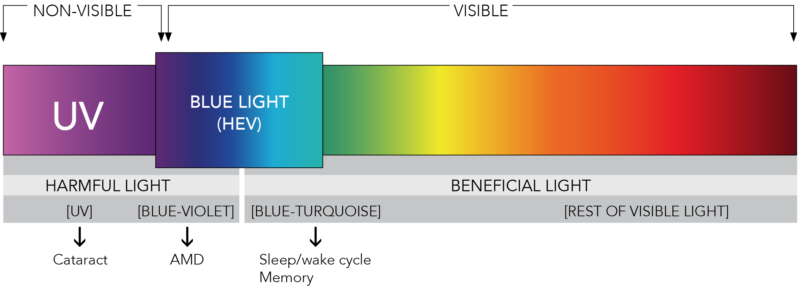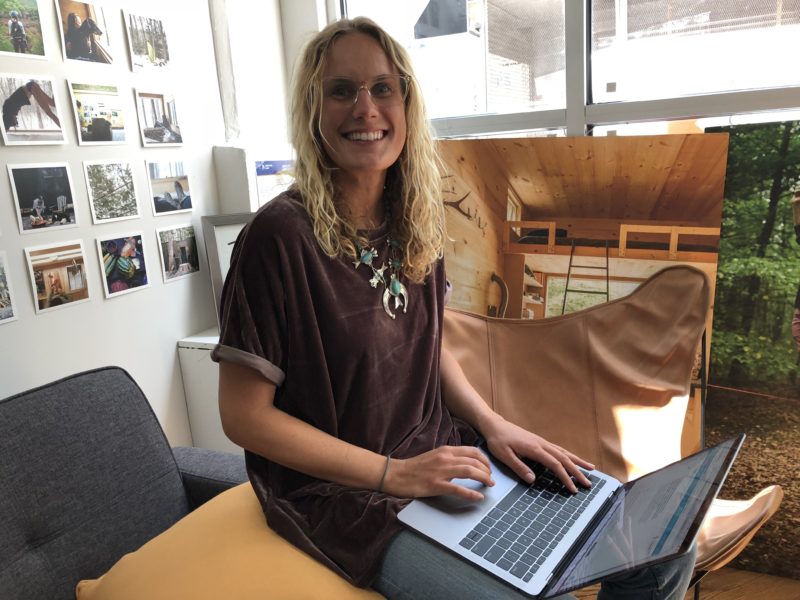There’s nothing like than waking up with a well-rested, clear mind. With the weight of the pandemic, and more time spent indoors and on screens, many people believe they’ve fallen into less healthy sleeping habits over the past year.
Here are a few tips to help you recommit to better sleep:
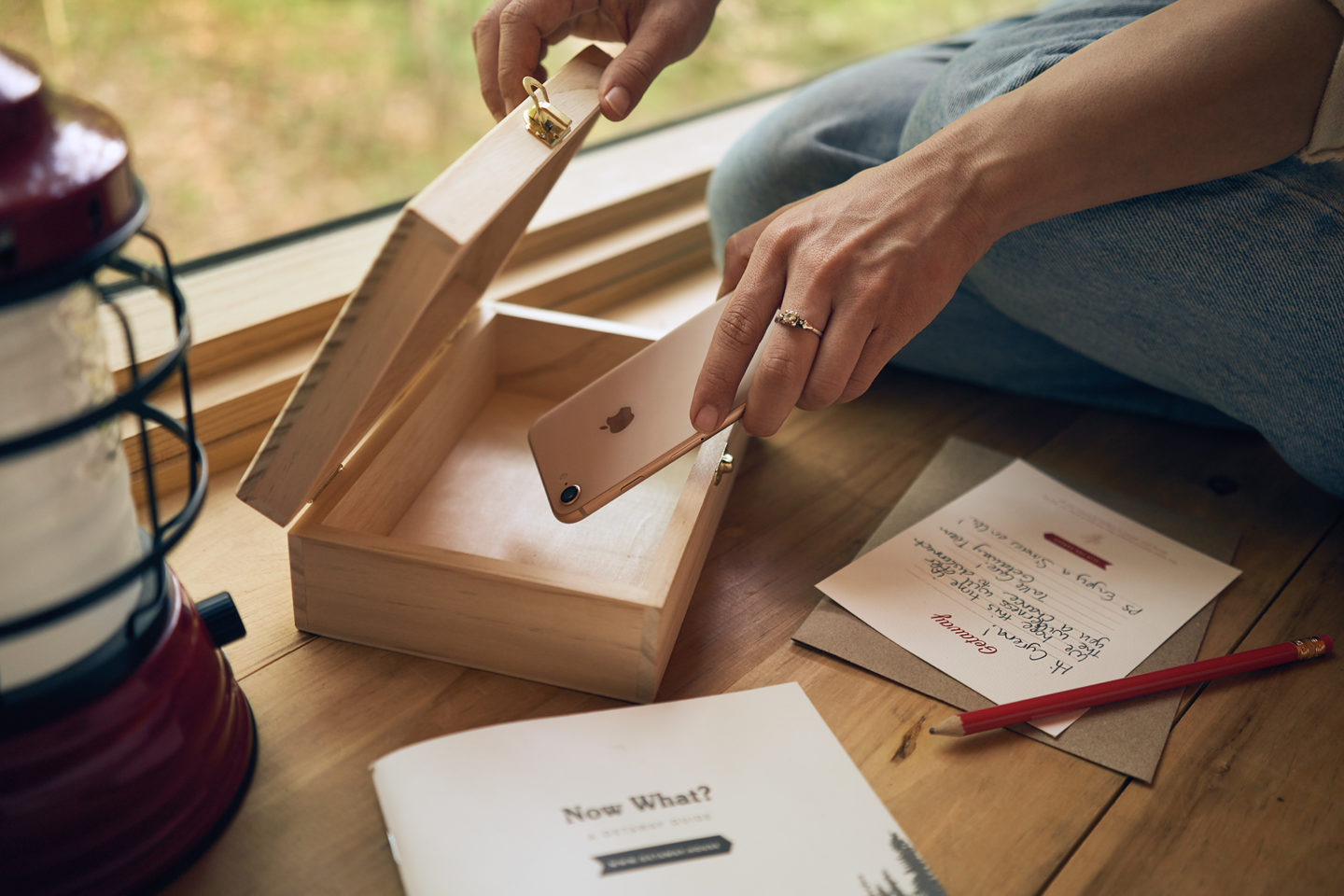
Keep Your Bed Phone-Free
There are plenty of reasons to keep phones far from our beds — that’s why our cabins are wifi-free and have a cellphone lockbox. The light from a smartphone’s screen disrupts our body’s melatonin production and the addictive allure of social media often keep us scrolling past our bedtimes.
Break the habit of late-night screentime by turning off electronic devices at least 30 minutes before bed. Even better? Charge your phone outside your bedroom and invest in an old-school alarm clock or one that mimics the sunrise to wake you up more naturally.
Set Your Daytime Schedule
Establishing healthy habits throughout the day will help you rest easy at night. Keep a consistent sleep schedule by getting up at the same time every day, even on the weekends. Cooking and eating food eating meals rich in fruits and veggies (we’re fans of these easy-to-make vegan skewers and variations on avocado toast). Regular physical activity — we like to hike — and spending time outside every day can also promote better sleep.
Create a Relaxing Night Time Routine
Make where you sleep a relaxing space — this often means cool, dark and quiet. Adding a fan can also help. Getaway Outposts are designed with sleep in mind: beds are fit with comfy linens and pillows, plus room-darkening shades to keep your cabin dim. It’s also important to wind down your mind. Let go of anxious or work-related thoughts over a cup of decaffeinated tea or by journaling a bit before bed. A good book also makes a great escape, so our cabins come with recommended reads to help you de-stress.
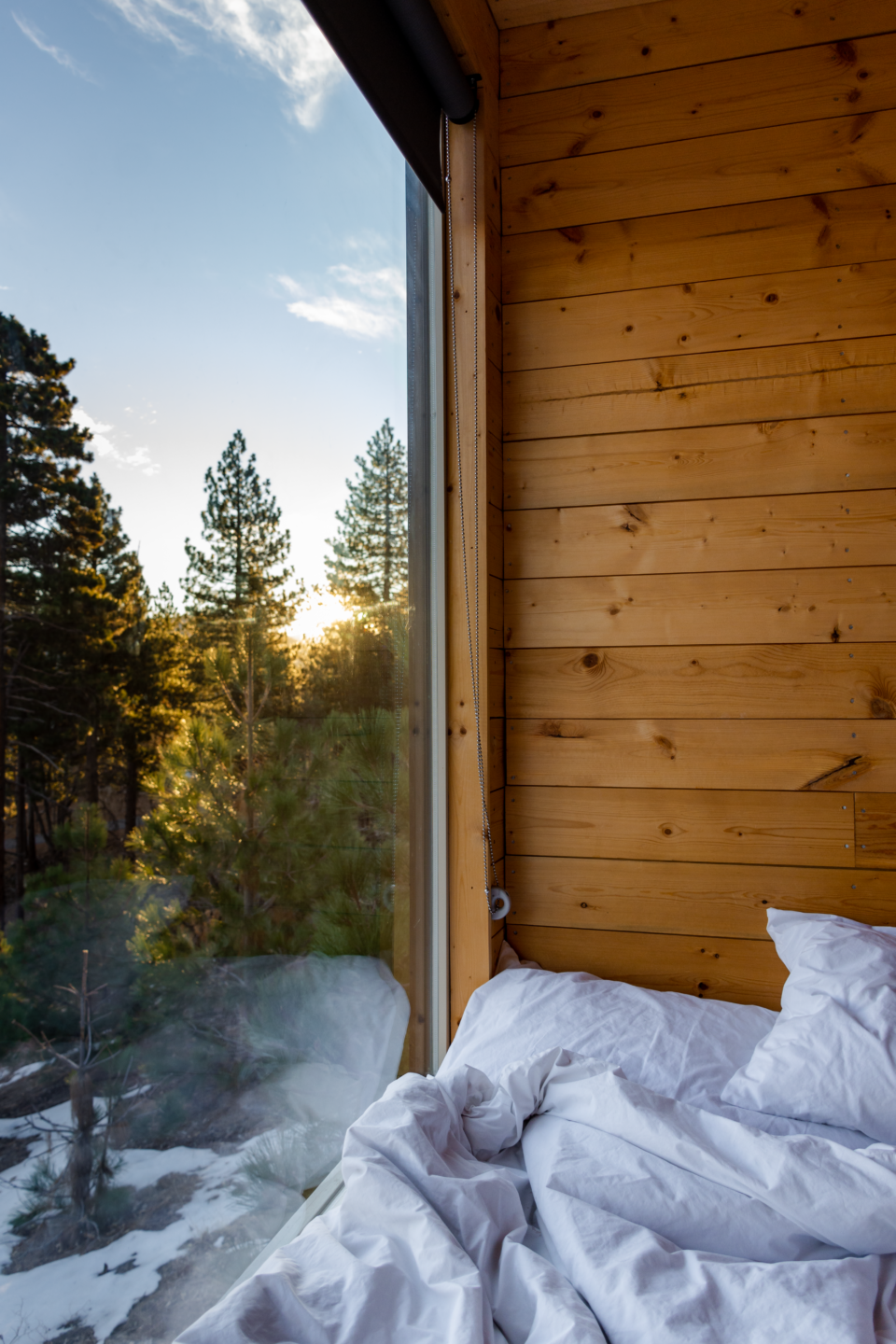
Ready to Sleep Soundly in Nature? Book your Getaway today.
